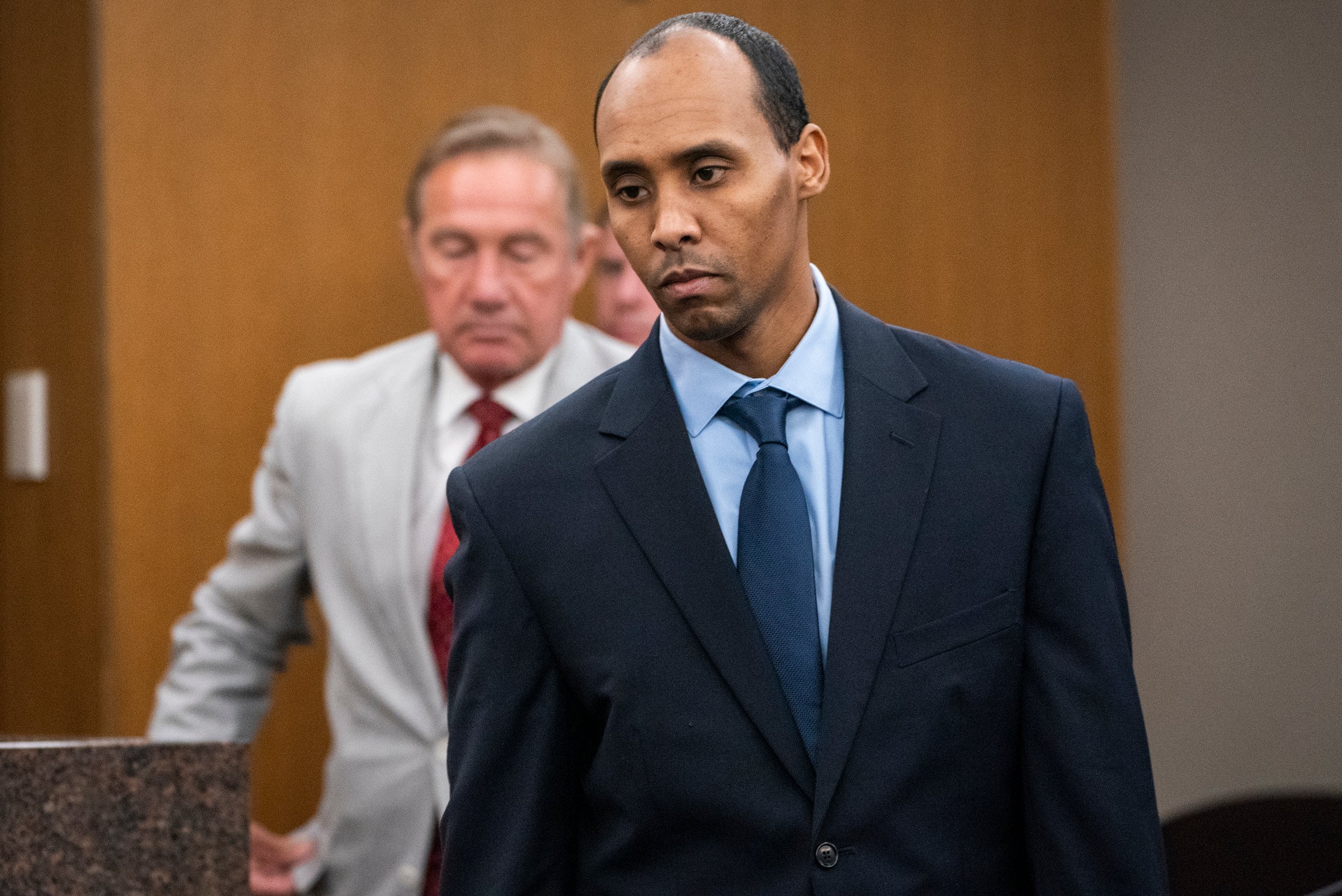Justices to decide if charge fits Minneapolis police killing
The Minnesota Supreme Court hears oral arguments Wednesday in the case of Mohamed Noor

Your support helps us to tell the story
From reproductive rights to climate change to Big Tech, The Independent is on the ground when the story is developing. Whether it's investigating the financials of Elon Musk's pro-Trump PAC or producing our latest documentary, 'The A Word', which shines a light on the American women fighting for reproductive rights, we know how important it is to parse out the facts from the messaging.
At such a critical moment in US history, we need reporters on the ground. Your donation allows us to keep sending journalists to speak to both sides of the story.
The Independent is trusted by Americans across the entire political spectrum. And unlike many other quality news outlets, we choose not to lock Americans out of our reporting and analysis with paywalls. We believe quality journalism should be available to everyone, paid for by those who can afford it.
Your support makes all the difference.The Minnesota Supreme Court will hear oral arguments Wednesday in the case of Mohamed Noor a former Minneapolis police officer who was convicted of third-degree murder in the shooting death of an Australian woman who had called 911 to report a possible sexual assault behind her home.
Noor's attorneys argue that a divided Minnesota Court of Appeals failed to follow legal precedents defining third-degree murder when it affirmed Noor's conviction. The high court's decision has repercussions for another high profile police killing case, the death of George Floyd Besides second-degree murder, former Minneapolis police Officer Derek Chauvin was also convicted in April of third-degree murder, as well as second-degree manslaughter.
The judge overseeing Chauvin's trial initially threw out the third-degree murder charge against Chauvin, but later reinstated the count after the Court of Appeals in February affirmed Noor's conviction for third-degree murder and second-degree manslaughter. Chauvin faces sentencing June 25. Prosecutors are seeking to add charges of aiding and abetting third-degree murder to the existing counts against three order ex-officers facing trial in Floyd’s death. All four former officers also face federal civil rights charges.
Noor was convicted in 2019 of third-degree murder and second-degree manslaughter and sentenced to 12 1/2 years in prison in the 2017 death of Justine Ruszczyk Damond, a dual U.S.-Australian citizen engaged to a Minneapolis man. Noor testified that a loud bang on the squad car startled him and his partner, and that he reached across his partner from the passenger seat and fired through the driver's window to protect his partner’s life. But prosecutors criticized Noor for shooting without seeing a weapon or even Damond’s hands when she approached the car.
A key issue is whether third-degree murder in Minnesota must involve actions that endangered multiple people, or if it's sufficient that only one person was put at risk. Both sides in their written briefs cited previous cases to back up their positions on how the statute should be interpreted.
The statute defines third-degree murder a “an act eminently dangerous to others and evincing a depraved mind, without regard for human life.” The high court is being asked to decide whether “dangerous to others” must be read as plural, or if the fatal act can be directed at a single, specific person.
Prosecutors wrote in their brief that over 40 states have some form of “depraved mind” or “depraved indifference” homicide statute, but “only a handful" require a defendant to endanger more than one person for prosecutors to get a conviction.
Defense attorneys wrote in their brief that the “particular-person exclusion" that they say was eliminated by the Court of Appeals serves an important public policy function because it helps draw a distinction between the varying degrees of murder and other forms of homicide charges, such as manslaughter, which carry different penalties.
If the high court void's Noor's third-degree murder conviction, it could still affirm his conviction for second-degree manslaughter, but it carries a recommended sentence of just 4 years under the state's sentencing guidelines.